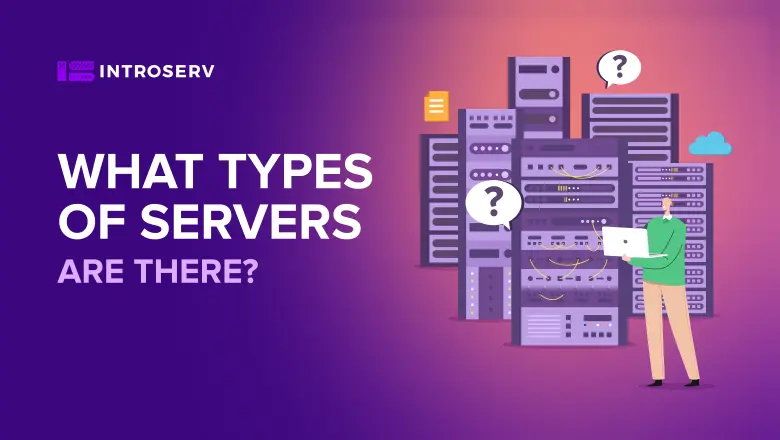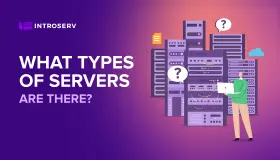
What types of servers are there?
There are several classifications of servers. What kinds of servers there are, we dealt with earlier, consider the following classification.
At its core, the server - a union of hardware and software parts. The hardware component is based on physical data carriers, which differ in appearance and technical execution. They fill the space of data centers or installed in a separate room of companies. The software part is a serving operating system and special applications that allow to process data and solve specific tasks entrusted to them.
Simply put, the server is a special hardware, on which the corresponding programs are installed. And there are several ways of implementation. Depending on how the server is used, there are three basic types: a) a dedicated server, b) virtual server, c) virtual hosting or cloud server. What is the difference?
A dedicated server
is a separate "machine" that is fully rented or purchased by the customer. Hardware and software components are configured for specific functions. Data storage and processing, software, management, even the ability to remotely restart the server and much more are entirely in the hands of the owner. Such a solution in the form of physical equipment ensures maximum performance, independence and confidentiality.
Virtual server
differs from a dedicated server, the fact that the tenant shares the server capacity with other users. With the virtualization of space, it is possible to completely isolate the operational resources of multiple clients located in a single physical media. For each user is fixed a certain amount of memory and configured control. The downside is that you are not the sole owner of the server, despite the full autonomy of his "segment".
Virtual hosting or cloud server
is a shared virtual space whose resources are available to multiple users. Despite the separate functionality for each user, the operating resource and memory are not fixed and completely isolated. Therefore, depending on the communication channel, traffic speed, etc. - clients of such a server under heavy load begin to play "tug-of-war" with the capacity, and hence the performance of the sites (sites, etc.), which they have placed in this virtual cloud. In detail we will talk about these types of servers in a separate article, where we consider their principles, capabilities, pros and cons, etc. And we will also dwell in more detail on the existing variations on each type.
Another accepted classification is the division of servers by the functions they perform. Depending on the highly specialized work performed by the server are distinguished:
- Gaming servers: equipment with high power requirements and fault tolerance.
- Video servers: additional video cards and specialized service video content.
- Graphics servers: reinforced equipment with graphics cards.
- Mail servers: a means of maintaining their own correspondence for companies.
- File servers: storage, processing and exchange of large amounts of data.
- Trade servers: support for online stores and other trading sites.
- Accounting servers: trouble-free operation 1C, safety and confidentiality.
- Remote or office server: remote workstations for company employees and maintenance of office equipment.
- Home server: an additional operating resource for personal needs.
This and other types of servers for individual tasks are usually included in the classic set of tariffs of companies providing data center services, while at the same time, this classification is not exhaustive and always possible to pick up non-standard equipment for other needs.
Servers are also often divided into types according to more specific parameters, such as ensuring the operation of a network or browser, the management of large arrays of data, etc. Therefore, a separate classification can be made:
1. Database server: a means of processing large amounts of information that is scalable depending on the number of users.
2. FTP server: a means of moving files on the network with a convenient and reliable form of administration.
3. DHCP server: a tool for assigning IP addresses to computers in local networks.
4. Proxy server: a tool that creates a secure access to the network and makes it easy to work with it again.
It should be noted that such classifications are somewhat tentative, and are intended rather to facilitate the coordination of tasks and finding solutions for users, so their number may vary in the descriptions.








